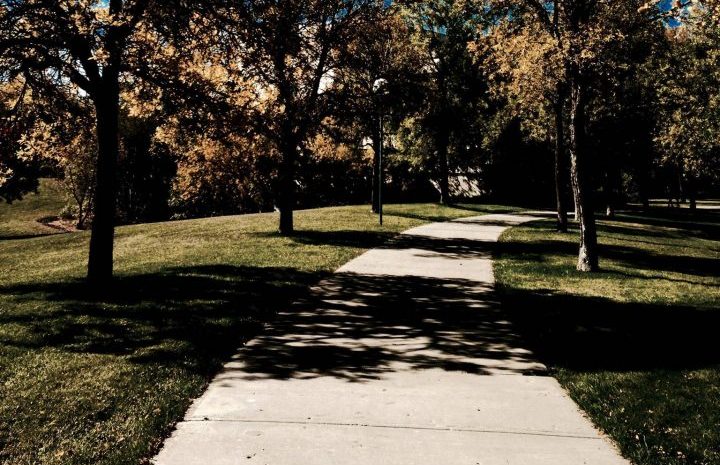Wascana Park is joining the list of public places taking action to limit the spread of the novel coronavirus.

The Provincial Capital Commission (PCC), which runs Wascana Centre, is turning the main walking loop around Wascana Lake into a one-way path.
“It’s all of our responsibilities to make sure that we flatten the curve,” said PCC CEO Monique Goffinet Miller. “We want to create an environment where people are able to properly practise their responsible social distancing.”
One-way signs have been added to the walking path, encouraging residents to follow the rules set in place. That can also mean finding an appropriate parking spot before you head out on a walk.
“If you park in one place, you have to be able to get back to that location, so keep that in mind,” said Goffinet Miller.
And while the hope is that the one-way paths can help with physical distancing while out for a walk, people should also keep in mind the guidelines when it comes to parking lots.

Get daily National news
Goffinet Miller says there have been several instances of people gathering in groups in the parking lots and are not within the two-metre social distancing guidelines.
“Going to parking lots and coming together to congregate like that is not a low-risk behaviour,” said Goffinet Miller. “That can lead to increased problems and increased risk. We are encouraging people not to do that.”
Questions about COVID-19? Here are some things you need to know:
Health officials caution against all international travel. All international travellers returning to Saskatchewan are required to self-isolate for 14 days in case they develop symptoms and to prevent spreading the virus to others.
Symptoms can include fever, cough and difficulty breathing — very similar to a cold or flu. Some people can develop a more severe illness. People most at risk of this include older adults and people with severe chronic medical conditions like heart, lung or kidney disease. If you develop symptoms, contact public health authorities.
To prevent the virus from spreading, experts recommend frequent handwashing and coughing into your sleeve. They also recommend minimizing contact with others, staying home as much as possible and maintaining a distance of two metres from other people if you go out.
For full COVID-19 coverage from Global News, click here.









Comments
Want to discuss? Please read our Commenting Policy first.